Great hobby - in the great outdoors - getting in touch with our environment
Some things that other apprentice beekeepers have said after their first year of beekeeping:
1) I should have gone to more club meetings to learn about the complexity of hive management (please come to our meetings)
2) No matter how many books you read, things don't always go as planned (be flexible, adaptable, learn)
3) Just because bees can sting doesn't mean they will
4) Keep good notes in class & about your inspections in the field
5) It's not about the honey, its about my bees & learning more about nature, the weather, & what's blooming around my bees
6) You don't ever stop learning...
Brad's favorite books: Beekeeping for Dummies by Howland Blackiston, The Backyard Beekeeper by Kim Flottum, & The Beekeeper's Handbook by Diana Sammataro and Alphonse Avitabile Magazine subscriptions: Bee Culture & American Bee Journal
Subspecies
resist, wax moth, more resistant to european Foulbrood, Queens easily located, consume more winter stores
Carniolans (a.m.
carnica)
Larger bees, adapted to colder climates, gentle dispostion, conservative of winter stores, and slow to build brood in spring, harder to find the queen
Larger bees, adapted to colder climates, gentle dispostion, conservative of winter stores, and slow to build brood in spring, harder to find the queen
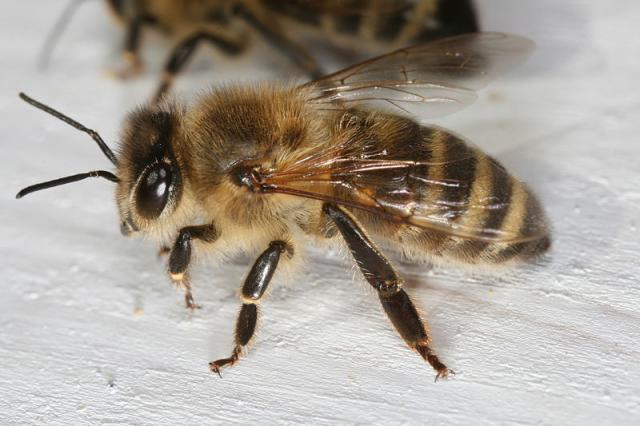
gentle, longer tongues, winter well, more propolis, harder to find the queen
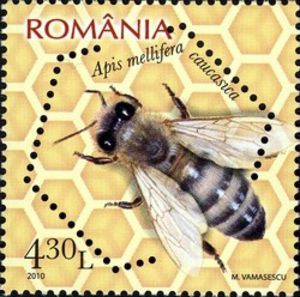
(derived from carnica-like bees)
gentle, long tongues, very winter hardy, lots of propolis, resistant to Varrroa?, may be aggressive
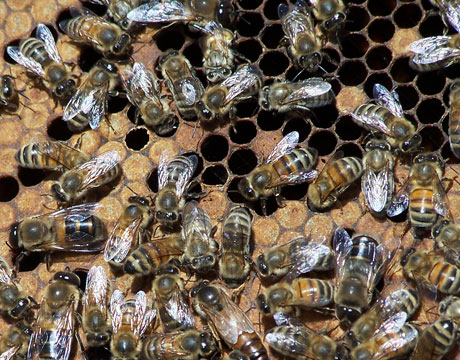
A Colony of Honey Bees
3 Types of Individuals
The time required to produce:
Queen - eggs 3 days, larvae 5 1/2 days, pupae 7 1/2 days. Total 16 days
Worker - eggs 3 days, larvae 6 days, pupae 12 days. Total 21 days
Drone - eggs 3 days, larvae 6 1/2 days, 14 1.2 days. Total 24 days
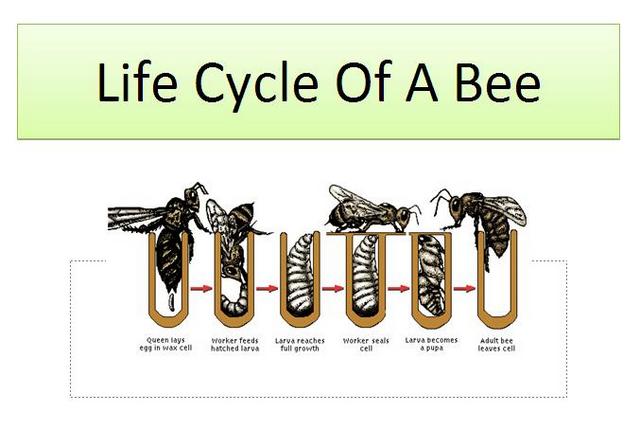
The Queen (1)
egg layer, pheromone production,

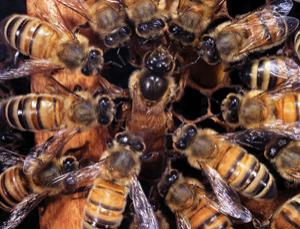
The
Workers
(20,000 to 60,000)
jobs - royal jelly, house cleaning, feed babies, bee bread, beeswax, construction, ventilation, guarding, foraging x 4, clustering, all duties except egg laying
(pass around bee jar)
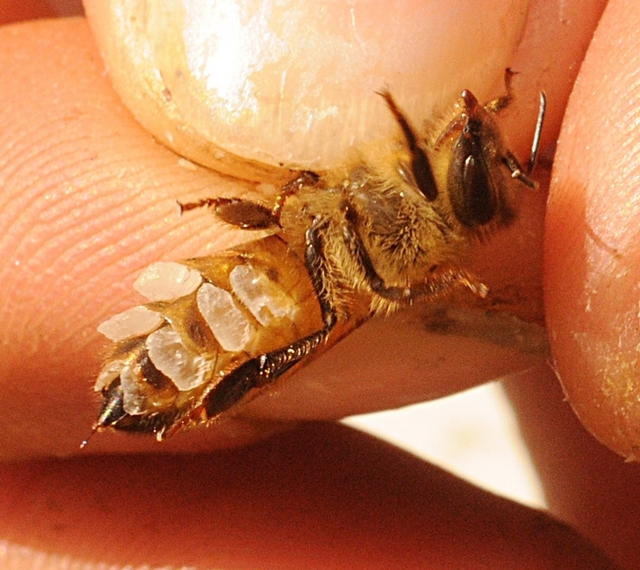
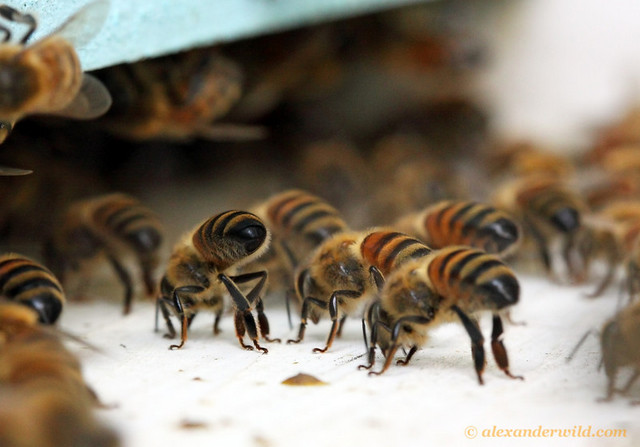
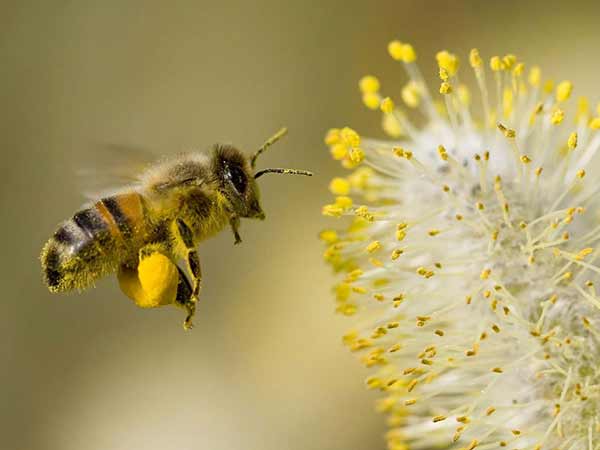
The
Drones
(few hundred)
primary function to mate with other colonie's virgin queens. big eyes, no stinger.
in Fall, booted out
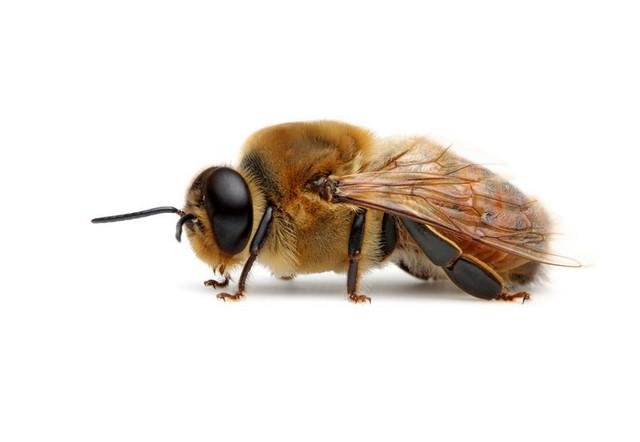
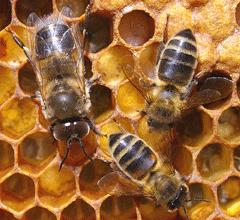
Honey Bee Products
Honey
liquid, comb, creamed, chunk
(pass around jar)
Beeswax
candles, polish
(pass around wax)
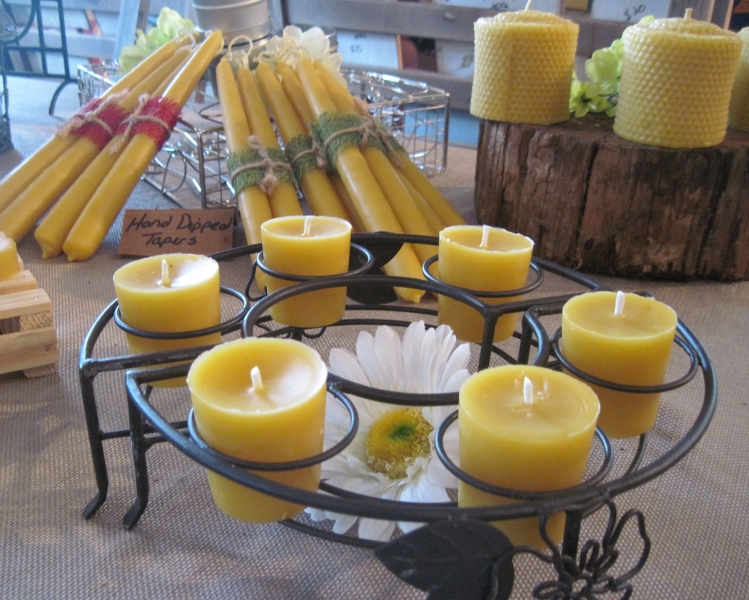
Propolis
tinctures, varnish
(pass around sample)
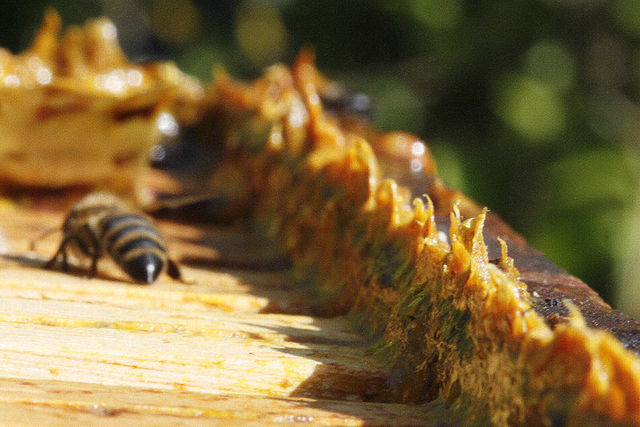
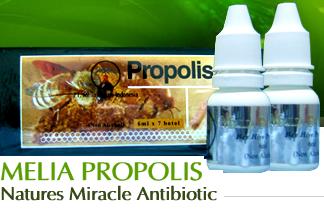
Royal Jelly
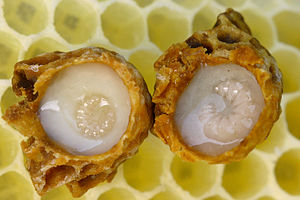
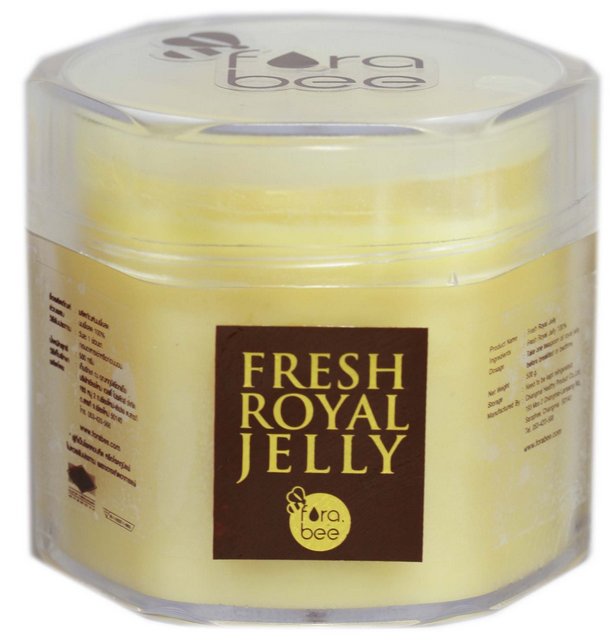
Pollen
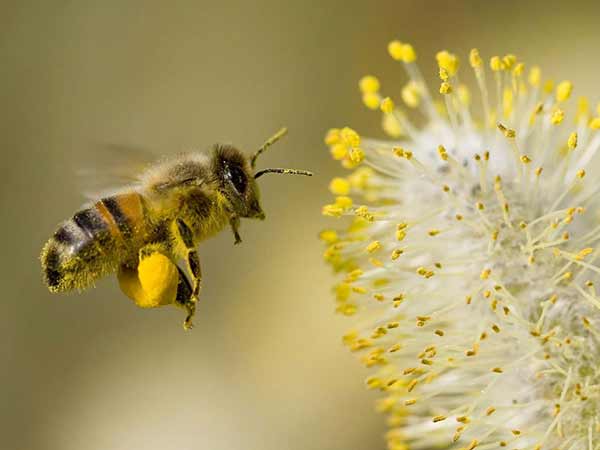
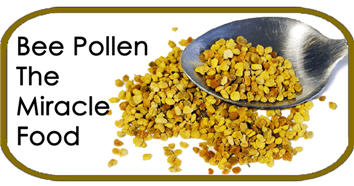
and honey and/or wax as ingredients in other Products
(a shameful plug
for my soap)
(pass around soap bar)